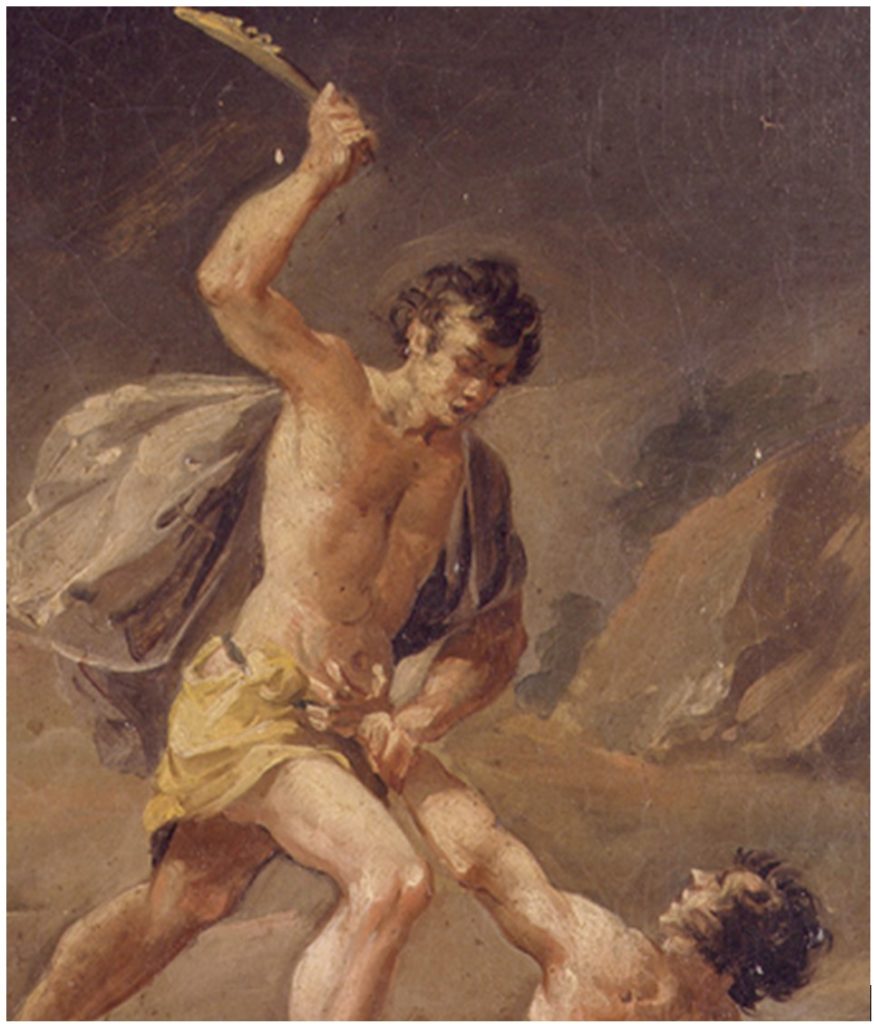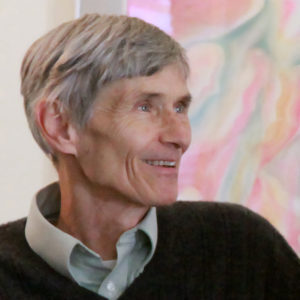The Moral Roots of the Climate Crisis
By Dennis Klocek 6 min read
In his widely acclaimed movie, An Inconvenient Truth, Al Gore concludes that the climate crisis is in reality a moral crisis. This series of articles seeks to support that idea and aims to search through three questions about the ways in which morality, traditionally a soul or spiritual value, could possibly interface with the science of climate research. Looking for an analog or image to begin this search the legend of Cain and Able provides a good starting point.

In the legend Abel was the first son of Adam and Eve. He was what contemporary theorists would call a forager. That is he did not produce food but gathered what was available. Cain on the other hand would be called a pastoralist or agricultural technician. He made instruments to prune trees and to plow the soil and to control fire. The ancient god Jehova recognized the sacrifice of Abel because Abel made no attempt to transform the givenness of the natural world. Jehova did not recognize Cain’s sacrifice because the fruits and vegetables presented for sacrifice were not taken from nature directly but were “engineered” by Cain in his own way. This difference is the root of the fratricide that lies at the beginning of technology. The pastoralists were not only adept at making tools they also were often bellicose. The most significant and rapidly developed technologies in the shift from Paleolithic times to the Neolithic revolution developed around the forms of more and more sophisticated arrowheads. That should sound distressingly contemporary and is also the central picture in the most ancient of myths.
The advance of the human being as a tool maker has often been accompanied by an aggressive urge to dominate and subdue the natural world. This polarity that arose with the proliferation of advanced weaponry in Neolithic times reveals a fundamental split in the human soul itself. For the purposes of this article the split will be characterized as the tendency to solve the mysteries of life (technologist) and the tendency to want to reveal the mysteries of life. Those who wish to solve the mysteries tend towards power as a solution. Those who wish to reveal the mysteries tend towards wisdom. Cain took the path to personal power and Abel took the path of accepting the wisdom of his god. When extreme, or exclusive either of these two paths can lead to difficulty.
When excessive the power path leads to warfare, pollution, and excessive use of the earth’s resources for personal benefit. When balanced, the power path can provide for the advancement of knowledge that benefits all humanity.
When excessive, the wisdom of my god path, leads to fundamentalist beliefs and pogroms. When balanced the wisdom of god path can provide workable cosmological models for humans regarding the moral tasks of humanity. The obvious task is to somehow create conditions where the forces at work in both paths can be combined.

The two poles of Cain and Abel can be seen in the worldview of the two great Greek thinkers, Plato and Aristotle. Plato was born in 427 BC and became a kind of summarizer for the metaphysical views of the ancient world. He was a student of the Pythagorean approach to mathematics. That view held that there exists in the spiritual world a realm of archetypes. Archetypes are spirit beings who govern the appearances of the things found on earth. The higher archetypes that carry the responsibility for the higher life in human beings could be found in the symbolic language of geometry. To seek for the realm of the archetypes and experience them in the mind was the goal of the philosopher. In this gesture towards a metaphysical experience of god that is given from the cosmos and descends into the forms of nature we can find an echo of Abel.

Aristotle, a student of Plato began, naturally, as a Platonic thinker. Throughout his life, he grew away from the idea of archetypes and moved philosophically towards a method of thinking based on sensory perception and deductive reasoning. In the process of deductive reasoning the mind moves from general characteristics of things as they appear to sequences of details that are verified by subsequent sensory observations. The details that are grasped by the thinker amount to a scientific substantiation of the phenomenon. This is in contrast to a referral to a pre existing archetypal being in a spiritual dimension. In this approach Aristotle was akin to Cain.
The concept behind this article is that the present reliance on the scientific pursuit of power was ushered in by the scientific revolution starting with Copernicus, then Galileo and Kepler and ending with Newton. The second idea is that the mathematics and astronomy that marked the rise of the pursuit of power for contemporary science denied the cosmological foundations of many of these thinkers, most notably Kepler and Newton. Kepler’s work as was Galileo’s was couched in a geometrical language of unfolding geometrical reasoning that had a deep cosmological significance as a model for the way that the divine was embedded in the mundane world. In place of the geometry of Kepler, much of Newton’s work made use of arithmetic calculations that rendered the cosmological principle as remote and unnecessary due to the power of the abstract calculus.
Scholars believe that Newton’s lifetime output was overwhelmingly cosmological and alchemical, but it is the mathematical calculus that has come down into the modern world where cosmology is antique and power of computation is all. Without cosmology and the possibility of transcendent experience, the moral dilemma that is the root of the climate crisis becomes very problematic. It will be difficult to solve the problems of the climate crisis with tools that can not allow for a cosmological perspective of the significance of human beings in the life of the earth. To continue seeing the issues in terms of the data available to climate scientists, industry researchers and special interest groups is most likely to produce the mood of impasse currently dominant in this debate. Absent a significant cosmology that can link the human destiny to the destiny of the whole planet earth and the biography of the earth, all we are left with is the statistical and computational reference to physical data. No matter how compelling this data has not managed to inspire much change in the business as usual mindset of contemporary politicians and their constituencies.
The following articles will first trace a history of the two leading mathematical paradigms available for researchers. The issues raised in the brief history will then be used to highlight alternative types of research that is being done but is not receiving much interest in the present scientific community because, primarily, it is not representative of the current power / computation aspect of mathematics. This research will point out such diverse fields as, obscure influences (planetary field properties), synthetic or projective geometry, non linear systems and other studies that don’t yield as easily to analytical modeling techniques for model building. The contribution of each of these areas will be then brought into a comprehensive modeling approach accompanied by case studies to illustrate the potentials of using a different kind of mathematics for providing the cosmology that would allow science to engage the climate crisis in a moral arena.

Dennis Klocek
Dennis Klocek, MFA, is co-founder of the Coros Institute, an internationally renowned lecturer, and teacher. He is the author of nine books, including the newly released Colors of the Soul; Esoteric Physiology and also Sacred Agriculture: The Alchemy of Biodynamics. He regularly shares his alchemical, spiritual, and scientific insights at soilsoulandspirit.com.
Similar Writings
Video Series: The Alchemical Basis for Holistic Health Science
In this series by Dennis Klocek, he outlines a different way to look at health science through the temperaments. Part 1: Phase Theory and Element Theory In the first video, he compares the similarities between the contemporary phase theory of matter (solid, liquid, gas, warmth) and and the older element theory (earth, water, air, fire).…
Why use oils on the body
Since the most ancient times, the application of fragrant oils to the body has provided a special and harmonizing experience. From the language of anointing in the ancient texts to the current research in essential oils the recognition that a unique dimension is offered to humans in the application of fragrant oils to different areas…